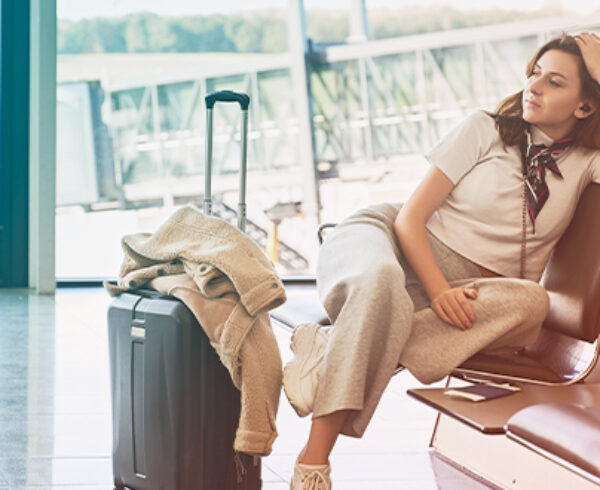So many Travelers claim they’re concerned with the impact their travel has on the environment. Corporations are following suit. Why has it been so difficult to shift Travelers from planes to trains?
Looking back a year ago, the process of shifting Travelers from planes to trains seemed positive. As CNN reported at the time, Europe started out strong, with big plans. For example, there was France’s legislation that would do away with airline routes that were deemed unnecessary where rail travel was available. This plan did actually go into effect in May 2023. Some airlines had also partnered with rail providers to offer Travelers multi-modal trips (as was the case with KLM).
Could any place in the world make the switch from planes to trains? Well, it seemed that Europe would be that place, given the region’s robust infrastructure.
However, since last year, early optimism has been dampened. The above-linked CNN article detailed how France’s legislation, which seems, on the surface level, quite impactful, actually didn’t have the broad reach it was initially assumed. Only three airline routes ended up being canceled due to the decree.

So, where are we at today?
In April of 2024, about a year after CNN released its account of Europe’s then-failure to make a more comprehensive switch from planes to trains, Business Travel News Europe took a look at the situation as well. The publication noted that, while there are still many good reasons to make the switch from planes to trains, there are also many reasons to still choose flying over rail travel, particularly for business Travelers.
That said, support for rail travel in the business world is there. In the United Kingdom, an Institute of Travel Management poll found that nearly half of all companies have a rail-first travel policy. Many corporations have likewise adjusted their travel policies to promote rail travel. They’re drawing sharp lines around when Travelers are permitted to fly and when they must choose rail travel first.
What Needs to Happen to Shift Travelers from Planes to Trains in Reality?
Clearly, more is needed to shift Travelers from planes to trains, in reality. We need to move beyond lackluster legal moves and the general consensus that travel needs to become more sustainable.
In the above-linked article, Business Travel News Europe laid out a few suggestions. For example, it noted that, while in Sweden, many corporations highly encourage rail use, it’s not always the first choice. This is especially the case when business Travelers are pressed for time or in light of infrastructural difficulties and poor weather that makes rail travel impossible. To address this, more attention could be made to upgrade fleets, as well as to maintain railway networks. This would make travel easier and lessen the likelihood of infrastructure-related delays or cancelations.
Similarly, in other European countries, rail strikes can make rail travel nearly impossible. This is something that business Travelers may not want to deal with. In these cases, it could be valuable to apply pressure on the powers that be to improve working conditions and payment for strikers.
Of course, making it as easy as possible for Travelers and Travel Managers to book rail travel is a great starting point overall. So many travel booking platforms prioritize air travel. It can be easy to opt for that as your first choice. Changes on the platform level could help.
How Travelers Will Make a Difference
Some may argue that Travelers will need to apply pressure to ensure that these changes are made. That assumes that the Traveler has a great amount of choice when traveling for business. Travel Managers and arrangers could likely do more on behalf of their Travelers, by pushing for more rail options.
Business Travel News Europe also notes that when these changes come, and more Travelers switch over from planes to trains, that change should come slowly. Changes should be made in a way that’s comfortable both for businesses that are looking to remain as profitable as possible while still adhering to sustainability standards, as well as for reluctant Travelers who may not so easily interrupt their travel habits.
Wherever the change comes from, though, one thing is certain — global effort is required for success.

What to Do in the Meantime
Until rail travel is a more feasible option for the majority of business Travelers, though, what can we do?
Looking for sustainability-focused airlines can help. As JTB Business Travel has covered in the past, more and more airlines are making efforts to become more sustainable (even if air travel in and of itself is not eco-friendly).
One most recent example of this comes in the form of a study conducted in 2021, but for which the results were just recently released. As Aviation Week reported, “Results from the first in-flight study of emissions from a commercial aircraft using 100% sustainable aviation fuel in both engines, conducted in 2021, have confirmed a reduction in contrail formation compared with conventional fossil Jet A-1 fuel.”
Need More?
The question of sustainability in travel is a complex one. How do we balance sustainability with profits and productivity? How do we ensure that we protect the planet while also protecting our bottom lines?
JTB Business Travel knows the importance of focusing on both. We can help you formulate a travel policy and program that helps your teams operate at their peak. Meanwhile, we’ll also be helping you meet your sustainability goals.
Learn more and get in touch today to discuss our breadth of travel management solutions.













